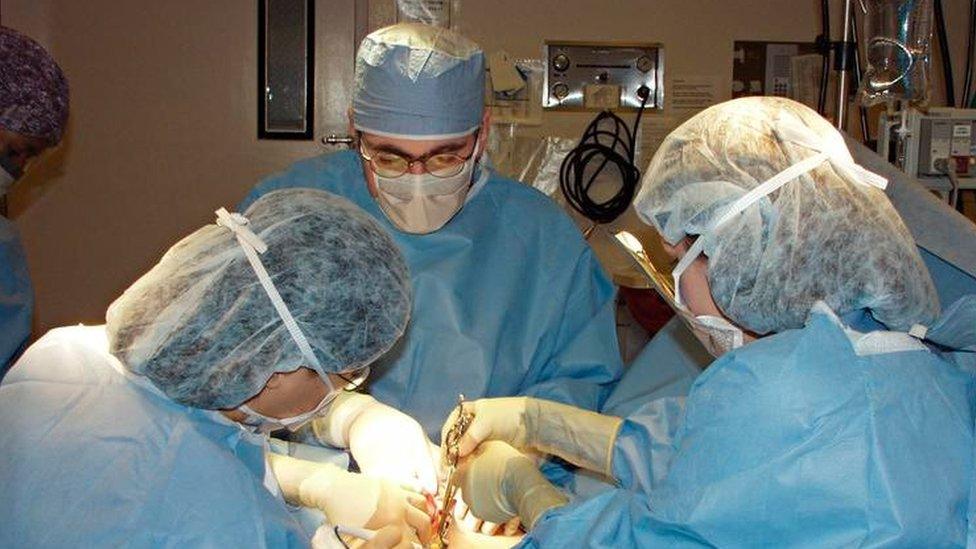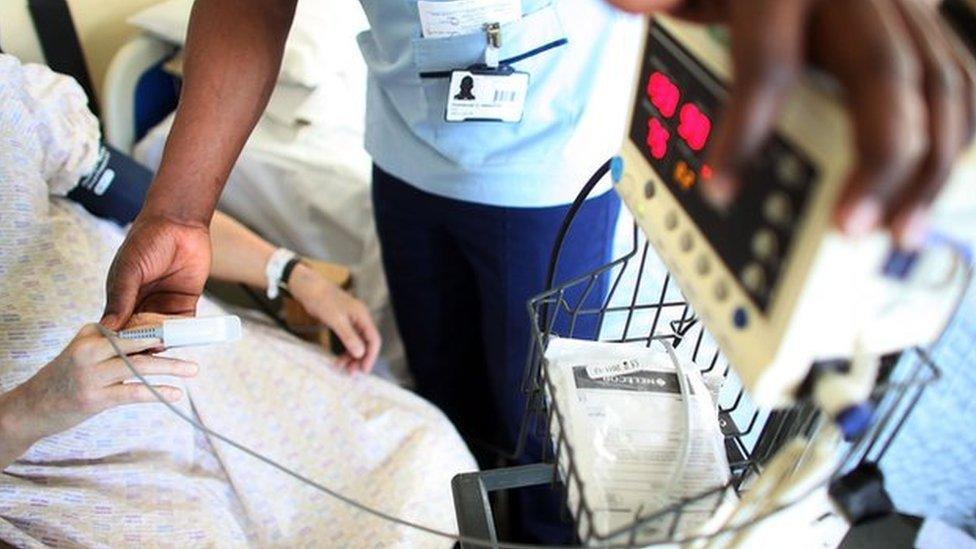Target for routine operations missed for first time
- Published

The target for routine operations in England, such as hip and knee ops, has been missed for the first time.
At the end of December 91.8% of patients on the waiting list had been waiting less than 18 weeks.
The target is 92%, and was put in place in April 2012.
December 1 was the day of the first junior doctors strike. It was called off at the last minute, but hospitals had already cancelled a few thousand operations.
The NHS England statistics show that at the end of December the number of patients waiting to start treatment for routine operations was just under 3.3 million and of those, 755 people had been waiting for longer than 52 weeks.
'Extremely distressing'
The figures show that the 92% target to treat patients within 18 weeks was missed in:
Plastic surgery - 87%
Neurosurgery - 87%
General surgery - 88.6%
Oral - 91.2%
Ear nose and throat - 90.8%
Cardiothoracic - which relates to the heart and chest or lungs - 88.7%
An NHS England spokesman said: "Hospitals continue to treat more than nine out of 10 patients within 18 weeks of their referral.
"More than 1.14 million patients started consultant-led treatment in December and the total number of patients referred in 2015 is up 4.1% on the previous year."
The NHS England figures also show that during the month of December there was a rise in the number of days patients were delayed from leaving hospital or other care settings.
The Royal College of Surgeons said the figures showed there been a 12% increase in delays in 2015 compared to the calendar year of 2014.
Its president Clare Marx said: "In surgery, performance has been particularly affected for operations such as hip and knee replacements. Delayed treatment is extremely distressing to all patients.
"It is welcome that the government has promised extra money in the comprehensive spending review but we also need a long-term sustainable plan to address the increasing numbers of patients needing surgery."
She said she was also "increasingly concerned" by the rising number of patients being delayed from leaving hospital to go home or alternative care environments.
If hospitals do not have beds free, one of the consequences of this is a cancelled operation.
"This not only places the patient at greater safety risk, such as falls, or immobility which can lead to infection, but also denies much needed hospital beds to others," she added.

The NHS in winter: Want to know more?

Special report page:, external For the latest news, analysis and video
Winter across the UK: A guide to how the NHS is coping
Video: Why hospitals are under so much pressure
Video: How a hospital can grind to a halt

- Published9 February 2016

- Published29 January 2016
- Published28 January 2016
